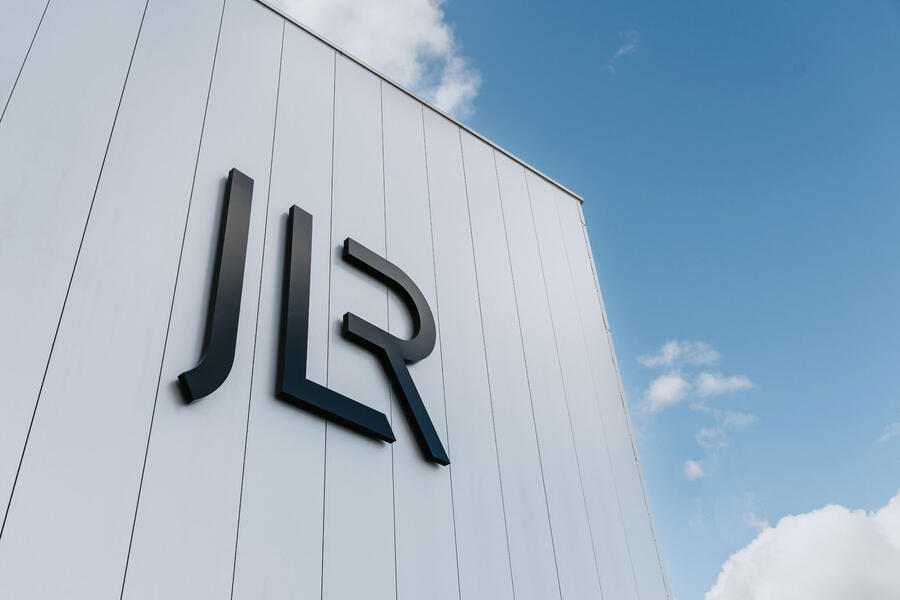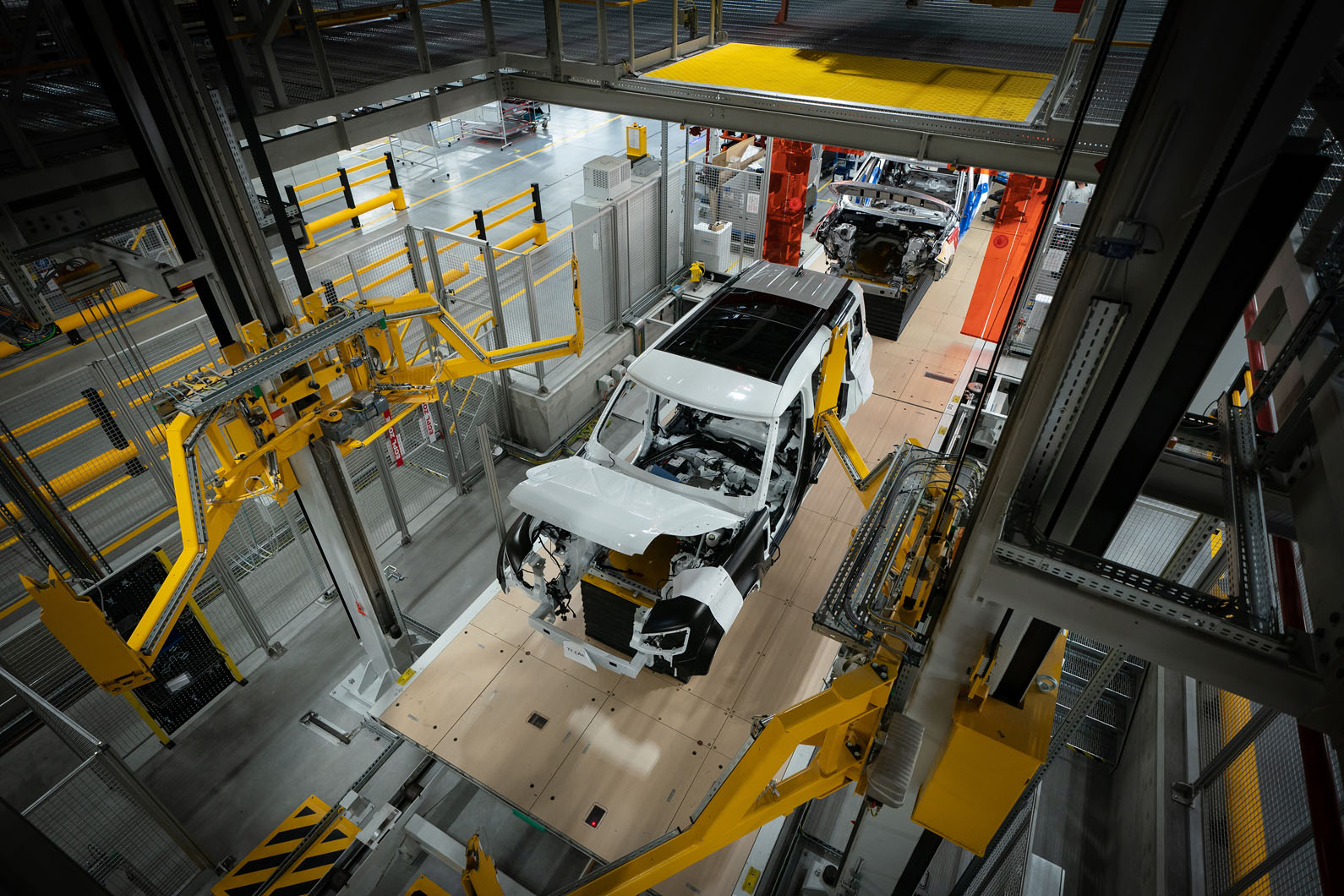JLR can now pay suppliers as it finally begins to restart its IT system following a cyber attack on 1 September – but its production lines will remain static until 1 October.
The hack incapacitated the Land Rover maker, forcing it to shut down its internal computer systems in an effort to protect data from being stolen.
This resulted in production shutdowns at all of its global plants, created issues with parts ordering and stifled retailers.
The shutdown has also heavily impacted suppliers, so much so that the government was today (Thursday) debating bailout measures in order to prevent any layoffs or bankruptcies, reports the BBC.
Also today, JLR has confirmed that “sections of our digital estate are now up and running”, including its payment systems – and the company is “now working to clear the backlog of payments to our suppliers as quickly as we can”.
What’s more, JLR’s Global Parts Logistics Centre, which supplies the parts distribution centres for retailers globally, is “now returning to full operations”, meaning servicing and repairs can once again take place.
JLR is now also able to digitally sell and register new vehicles (it was previously doing the latter via telephone to the DVLA), as its financial system has been brought back online.
Its statement concluded: “These are important initial steps as our dedicated teams work around the clock alongside cybersecurity specialists, the UK government’s NCSC [National Cyber Security Centre] and law enforcement to ensure we restart in a safe and secure manner.”
The latest update does not include a restart of production, however, which is still pencilled to resume on 1 October.
This date was set on 23 September after JLR extended its vehicle production pause by another week.
The company had planned to restart production at its UK and Slovakia factories on 24 September but delayed the restart as part of a plan to resume operations “in a safe and secure manner”.
The move means JLR will lose a full month of vehicle production, having not produced any vehicles since shutting down all its global systems in response to the attack on 1 September.
The impact on volumes will be made clear when the company releases its production numbers for the quarter, but in the three months to the end of September last year, it produced more than 80,000 cars.
View all car reviews
The effect could be costing JLR up to £5 million a day, business economics professor David Bailey has told Autocar.
Since the cyber attack, the majority of JLR’s employees have been off work, with lost hours being banked.
Union Unite said last week that employees within the supply chain are being told to apply for Universal Credit as they are moved onto reduced or zero-hours contracts by employers battling to stay afloat.
Earlier reports suggested that some suppliers “will go bust” as a result of the ongoing issues at JLR.
Unite general secretary Sharon Graham said the union has written to the UK government demanding it set up a furlough scheme to take the pressure off suppliers by supplementing workers’ pay packets while they’re unable to do their jobs.
“Workers in the JLR supply chain must not be made to pay the price for the cyber attack,” said Graham. “It is the government’s responsibility to protect jobs and industries that are a vital part of the economy.”
Graham cited a similar scheme set up on 15 September by the Scottish government to support bus maker Alexander Dennis and said “a similar scheme for workers in the JLR supply chain [should be set up] now”.
Autocar first reported issues affecting JLR on 1 September, when dealers couldn’t register new cars on ‘new plate day’ , traditionally one of the year’s busiest for registrations.
In an effort to combat the hack, JLR began “shutting down our systems” on 2 September.
It’s still in the process of rebuilding them and is unabel to confirm a timescale for the fix.
The hack has left JLR incapacitated. No cars have been produced globally since, leading to millions of pounds of lost income.
The extent of the issues meant JLR brought police and cybersecurity experts in to “restart our global applications in a controlled and safe manner”.
During this process, which included an investigation, it was discovered that “some data” was “affected”, said JLR. Those affected will be contacted, said the firm.
It’s not officially known what data was taken or if a ransom demand has been made, but it is thought it most likely involves customer data given the involvement of the police.
JLR said in a statement on 15 September that it will look to restart production on 24 September.
On 3 September, a group of hackers calling themselves Scattered Lapsus$ Hunters claimed responsibility for the attack on JLR.
This is the same group that hacked Marks & Spencer in May, causing the British retailer seven weeks of disruption and costing £300 million in lost operating profit.
It claimed to have obtained customer data after exploiting a similar flaw in JLR’s IT system. The claim was made on a Telegram messenger group, where a user linked to the hackers posted a screenshot of what appeared to show JLR’s internal system.
A member of the group revealled that a well-known flaw in SAP Netweaver, third-party software used by JLR, was exploited to access the data.
The US’s Cybersecurity and Infrastructure Security Agency warned about the flaw earlier this year. An update for the software was released, but whether JLR applied it is unknown.
It’s also not known what data was taken or if a ransom demand has been made of JLR.
The US’s Cybersecurity and Infrastructure Security Agency warned about the flaw earlier this year. An update for the software was released, but whether JLR applied it is unknown.
It’s also not known what data was taken or if a ransom demand has been made of JLR.
Join our WhatsApp community and be the first to read about the latest news and reviews wowing the car world. Our community is the best, easiest and most direct place to tap into the minds of Autocar, and if you join you’ll also be treated to unique WhatsApp content. You can leave at any time after joining – check our full privacy policy here.
Will is Autocar’s news editor. His focus is on setting Autocar’s news agenda, interviewing top executives, reporting from car launches, and unearthing exclusives.
As part of his role, he also manages Autocar Business – the brand’s B2B platform – and Haymarket’s aftermarket publication CAT.
We all buy our cars believing we’re driving the best most reliable vehicle on the road at a pr we can afford, really?, the thing is all cars have faults some more than others and not just at the cheaper end of the car market, technology has it uses but when someone or somebody decides to play silly buggers with the computers the whole car production logistics can’t operate,and isn’t there an old fashioned fall back system so when this happens it can be set in motion until the crisis is over.
JLR reportedly had nominates ce coverage against a cyber attack AND they may a £2.2billion profit last year. As a taxpayer we should NOT be funding their mess.
NO INSURANCE COVERAGE
Perhaps they should just let JLR die and close down instead of suggesting that my taxes fund a producer of Co2 emissions, the same emissions taxation that they have been clobbering motorists with, and let the employees find something else to do that’s better for the environment.
Do you want your taxes spent trying to save jobs or spent on the resultant unemployed. And on top of those job losses, last year JLR made a pre-tax profit of £2.5 billion. So you’re loosing those taxes on profit too.
Don’t you agree funding the suppliers in the short term, ( i.e. as a sort of loan ) and then recouping the monies when the business resumes would be much better for our economy?
Maybe you just all suggest we go and live in a cave and actually stop living.
..and let the employees find something else to do that’s better for the environment.
Had a pretty good run and made other manufacturers look up when the award winning I Pace came out.
View all car reviews











